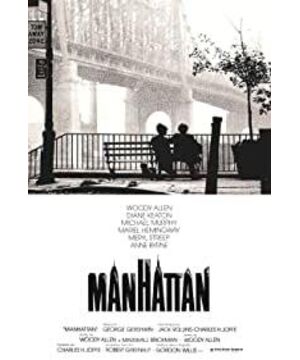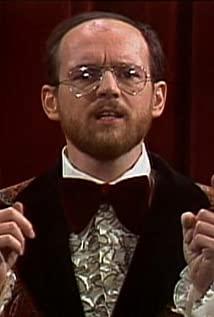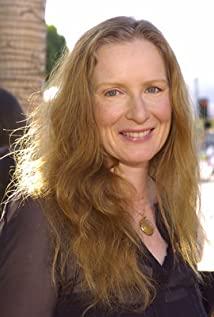Before we proceed, we shall ask ourselves, what is the “contemporary culture” that Allen is referring to? The film was released in 1979 and the “Manhattan” he refers to is the one in the 70s. New York City in the 1970s was "Dirty, dangerous and destitute"(Tannenbaum). Crimes were rampant around the city and Times Square was filled with hookers and drug dealers. The economic chaos and political upheaval brought by the war and Watergate rendered the city powerless in the face of crisis. It is not surprising that Allen was heartbroken, seeing his beloved city turning into a nest of crimes and drugs. While Manhattan is not Taxi Driver, which exposes the crimes of New York unreservedly and praises actions against them, that doesn't mean Allen shies away from all the trouble the city and the society is in. He turns it, instead,into a celebration of New York and the people living in it. Allen, born in Brooklyn, has spent his entire life living in the city, knowing all the bits and pieces about it. Certainly it is far from perfection, but neither is anything else . Nonetheless Allen knows that New York is a great city, and the reason is written all over Manhattan, from the stunning 59th Street Bridge at dawn to the enchanting and dark Planetarium in the American Museum of Natural History.from the stunning 59th Street Bridge at dawn to the enchanting and dark Planetarium in the American Museum of Natural History.from the stunning 59th Street Bridge at dawn to the enchanting and dark Planetarium in the American Museum of Natural History.
The film centers on four people living in Manhattan, Isaac (played by Allen himself), Mary, Yale and Tracy. These characters embody the spirit of the city. All of them are highly educated and possess rich cultural knowledge. Cultural debates take place among them throughout the film. The most heated debate happens when Isaac meets Mary at an art fair, where Mary criticizes the photography Isaac likes as derivative and witless and praises the steel cube Isaac dislikes as textual and “has a marvelous kind of negative capability”, which is clearly a reference to John Keats. These polished critiques of art clearly reflects their knowledge and insight in art. Thanks to the city's inexhaustible amount of cultural institutions, numerous scenes in the film take place in museums, art galleries and special art exhibits,which allows these debates to happen. These characters themselves also work in television, book editing and universities. They are supposed to represent the intellect of this city that is famous for its huge international media conglomerates, Broadway and several of the greatest museums in the world , among others. Allen himself obviously takes pride in the status of New York as one of world's greatest cultural capitals. When Mary later says that she is from Philadelphia, believes in God and does not want to have this conversation, Isaac is confused by what Mary means by that. But we know for sure that Allen himself isn't. From these characters, we can see how the status of New York as a cultural capital affects the way they live and shape them as who they are.book editing and universities. They are supposed to represent the intellect of this city that is famous for its huge international media conglomerates, Broadway and several of the greatest museums in the world, among others. Allen himself obviously takes pride in the status of New York as one of world's greatest cultural capitals. When Mary later says that she is from Philadelphia, believes in God and does not want to have this conversation, Isaac is confused by what Mary means by that. But we know for sure that Allen himself isn' t. From these characters, we can see how the status of New York as a cultural capital affects the way they live and shape them as who they are.book editing and universities. They are supposed to represent the intellect of this city that is famous for its huge international media conglomerates, Broadway and several of the greatest museums in the world, among others. Allen himself obviously takes pride in the status of New York as one of world's greatest cultural capitals. When Mary later says that she is from Philadelphia, believes in God and does not want to have this conversation, Isaac is confused by what Mary means by that. But we know for sure that Allen himself isn' t. From these characters, we can see how the status of New York as a cultural capital affects the way they live and shape them as who they are.Broadway and several of the greatest museums in the world, among others. Allen himself obviously takes pride in the status of New York as one of world's greatest cultural capitals. When Mary later says that she is from Philadelphia, believes in God and does not want to have this conversation, Isaac is confused by what Mary means by that. But we know for sure that Allen himself isn't. From these characters, we can see how the status of New York as a cultural capital affects the way they live and shape them as who they are.Broadway and several of the greatest museums in the world, among others. Allen himself obviously takes pride in the status of New York as one of world's greatest cultural capitals. When Mary later says that she is from Philadelphia, believes in God and does not want to have this conversation, Isaac is confused by what Mary means by that. But we know for sure that Allen himself isn't. From these characters, we can see how the status of New York as a cultural capital affects the way they live and shape them as who they are.From these characters, we can see how the status of New York as a cultural capital affects the way they live and shape them as who they are.From these characters, we can see how the status of New York as a cultural capital affects the way they live and shape them as who they are.
However, apart from their glamorous appearance and fanciful cultural glossary, what is truly intriguing about those characters is the problems they each have, just as in the case of New York City. A lot of their problems have to do with their relationships and emotions. For Isaac, the fact that he is involved with a teenage girl, Tracy, bothers him greatly. Upon knowing that Tracy goes to a high school, Mary wittingly remarks that “somewhere Nabakov is smiling”, referring to the devastating relationship between Lolita and Humbert in the novel Lolita. If anything, the feelings Humbert has for Lolita, a girl much younger than his age, ruins his life almost completely. After Lolita disappears all of a sudden one day, Humbert goes on a frantic search for her that lasts years . When he finally finds her at the end,he goes on a killing spree of her abductor that ends in a disaster. Though not nearly the case of Lolita, the relationship between Isaac and Tracy is equally troublesome because of the age gap. The difference here is that Isaac keeps things under control because he knows that he might wind up in a similar situation as Humbert if he lets things go freewheeling. But at the end, feelings still get the upper hand. Yet the struggle of Isaac is the battle between his ideal and his morality. The same thing can be said about Mary, who is involved in an extra-marital relationship with Yale. She constantly repeats that she is from Philadelphia and her parents are married for 43 years and “nobody cheats at all”.This indicates her repulsion towards the nature of her relationship with Yale because she knows that “this is going nowhere” and she's merely wasting her time. She knows that she is “young, highly intelligent and got everything going for [her]” yet she is “wasting herself on a married man”. This happens to the best of us. Regardless of how much knowledge one has or how well-to-do one is, it seems inevitable that we at some point struggle to find the right places for ourselves. This is especially true for New Yorkers in the 1970s who all of a sudden find themselves in the middle of an ailing city. Allen's film, clearly dedicated to this city and all the problems it has, rings a bell among audiences.This happens to the best of us. Regardless of how much knowledge one has or how well-to-do one is, it seems inevitable that we at some point struggle to find the right places for ourselves. This is especially true for New Yorkers in the 1970s who all of a sudden find themselves in the middle of an ailing city. Allen's film, clearly dedicated to this city and all the problems it has, rings a bell among audiences.This happens to the best of us. Regardless of how much knowledge one has or how well-to-do one is, it seems inevitable that we at some point struggle to find the right places for ourselves. This is especially true for New Yorkers in the 1970s who all of a sudden find themselves in the middle of an ailing city. Allen's film, clearly dedicated to this city and all the problems it has, rings a bell among audiences.
Is there anyway that these problems can be solved? Allen certainly explores some of the possibilities in this film. He has an earnest appreciation for great minds, which he constantly shows in various films. Notably, Interior is written in the style of Ingmar Bergman and Stardust Memories is a remake of Federico Fellini's 8 1/2. There are also several references to Bergman and Fellini in Manhattan itself, showing their tremendous influence on Woody Allen. When Mary includes Ingmar Bergman in her “Academy of the Overrated”, Isaac rebuts with “Bergman? Bergman is the only genius in cinema today.” Later on, after meeting Mary's friends at MoMA, Isaac remarks that “it's an interesting group of people, your friends. It's like the cast of a Fellini movie”. Apart from the apparent influence,is Allen suggesting that we should rely on them to solve our own problems? Mary doubts so, harshly criticizing that “it is the dignifying of one's own psychological and sexual hangups by attaching them to these grandiose philosophical issues”. It suggests that appreciation for the great minds is merely a hypocritical dignification of one's own problems, but not the solution to them. In the case of Manhattan, we can see that the abundance of culture institutions and marvelous exhibits still cannot save Times Square from becoming the haven for prostitutes. Maybe art merely provides us a way to recognize or discern the problems, but fails to actually prevent them from happening.s own psychological and sexual hangups by attaching them to these grandiose philosophical issues". It suggests that appreciation for the great minds is merely a hypocritical dignification of one's own problems, but not the solution to them. In the case of Manhattan, we can see that the abundance of culture institutions and marvelous exhibits still cannot save Times Square from becoming the haven for prostitutes. Maybe art merely provides us a way to recognize or discern the problems, but fails to actually prevent them from happening.s own psychological and sexual hangups by attaching them to these grandiose philosophical issues". It suggests that appreciation for the great minds is merely a hypocritical dignification of one's own problems, but not the solution to them. In the case of Manhattan, we can see that the abundance of culture institutions and marvelous exhibits still cannot save Times Square from becoming the haven for prostitutes. Maybe art merely provides us a way to recognize or discern the problems, but fails to actually prevent them from happening.we can see that the abundance of culture institutions and marvelous exhibits still cannot save Times Square from becoming the haven for prostitutes. Maybe art merely provides us a way to recognize or discern the problems, but fails to actually prevent them from happening.we can see that the abundance of culture institutions and marvelous exhibits still cannot save Times Square from becoming the haven for prostitutes. Maybe art merely provides us a way to recognize or discern the problems, but fails to actually prevent them from happening.
Allen then goes on to explore other possibilities, again through Mary's voice. At this point we can see that while Isaac clearly represents Allen himself, Mary can be considered the “other” in his mind that constantly doubts the “self” and proposes alternative ideas . In this case, in an intimate setting at the planetarium, their heads appear as silhouettes in front of a huge bright image of Saturn. The dark images of heads seem to suggest the insignificance of their appearance at this point and the importance of their ideas instead. Mary suddenly asks Isaac fondly how many satellites of Saturn he knows, and Isaac frankly admits that he doesn't know any. As Mary boasts that she “got a million facts on [her] fingertips”, Isaac defends himself calmly with “ nothing worth knowing can be understood with the mind.Everything really valuable has to enter you through a different opening". “Where would we be without rational thought?”, asks Mary in disbelief, to which Isaac quickly responds with “You rely too much on your brain. And the brain is the most overrated organ." What we have here is a debate between rationality and emotionality, which has certain connections with the previous discussion regarding the great minds but is one step further. Mary, critical of the importance of great minds, relies on her own instead and emphasizes on rational thought, while Isaac suggests that rational thought cannot get us anywhere. The “different opening” Isaac talks about here must be emotions, unrelated to mind and rationality, yet makes up a huge part of our lives. Isaac, thus, may appreciate the great minds precisely for their emotional capabilities,the way they stir up feelings inside us that we might not have before. But aren't feelings the cause of all the problems in the film to begin with? Mary describes her extra-marital relationship with Yale as “a no-win situation” and the only thing that keeps them from getting out of that dreadful situation is their feelings for each other. However, when Yale rationalizes everything and finally decides to break up with her, he becomes “depressed and confused”. It seems that rational thought cannot really help them out here, and feelings only make it worse. It has come a full circle since we started.But aren't feelings the cause of all the problems in the film to begin with? Mary describes her extra-marital relationship with Yale as “a no-win situation” and the only thing that keeps them from getting out of that dreadful situation is their feelings for each other. However, when Yale rationalizes everything and finally decides to break up with her, he becomes “depressed and confused”. It seems that rational thought cannot really help them out here, and feelings only make it worse. It has come a full circle since we started.But aren't feelings the cause of all the problems in the film to begin with? Mary describes her extra-marital relationship with Yale as “a no-win situation” and the only thing that keeps them from getting out of that dreadful situation is their feelings for each other. However, when Yale rationalizes everything and finally decides to break up with her, he becomes “depressed and confused”. It seems that rational thought cannot really help them out here, and feelings only make it worse. It has come a full circle since we started.It has come a full circle since we started.It has come a full circle since we started.
Isn't it just like New York City in the 1970s? As the fiscal crisis loomed over the city, there was really little people could do. The police couldn't do anything about the soaring crime rates since they needed money and thus were corrupted themselves. Anyone fond of rebuilding the city's ailing infrastructure couldn't change the situation because people have lost their faith and started leaving, which meant that bricks and broken walls of those demolished buildings in the Bronx just lay there without redevelopment. Even the federal government refused the city's grant for bailout. Any form of rationality wouldn't work because nobody had the strength to take actions anymore. Emotions didn't help either as everyone was left in a hopeless and frustrated state. So what was it, as Allen may ask,that could change the fate of the city and the Isaacs and Marys living in it?
In 1977, Ed Koch was elected the new mayor and he might have an answer to this. He did a marvelous job pulling the city out of its nadir and the most important factor for his success might be the active restoration of hope. At one of his most iconic attempts, he spent hours riding subways and asking passengers “How am I doing?”. In order to restore hope, he used his limited funds to refurbish city streets and subways. He also made a considerable effort clearing the city's iconic parks such as Washington Square Park and Central Park from drug dealers and broken glasses. Though not the most financially profitable conducts, these acts essentially changed people's attitude toward the city. People once again started having hopes for the city to come back to its glory.And that's a starting point for any significant changes since you need to believe in them first. “Nothing's perfect,” says Yale's wife Emily calmly after acknowledging Yale's affair with Mary. She is supposed to be the most agonized character in the film since she is the only one being cheated, while the others are just confused about their inappropriate relationships. Yet she seems to be the calmest and most understanding one. Because she, of all people, knows what a difference it makes if you just admit that nothing is perfect and prepare to make compromises along the way. She tolerates Yale's affair with Mary and thus she still has her marriage unbroken. Just as how the Koch administration was willing to give up some financial profits in order to reconstruct the public faith in the city.If you are willing to take a look at anywhere in the city now, especially in the Bronx, you know these compromises in the name of hope and faith paid off tremendously.
And fortunately, that is exactly what this film is trying to do, to give us hope. Just as Tracy's final words before leaving for London, “you gotta have a little faith in people”, followed by some astounding images of Manhattan along with “ Rhapsody of Blue", as we are once again impressed by the beauty of the Empire State Building, the Chrysler Building and the 59th Street Bridge. We can almost hear Allen whispering to our ears, "you gotta have a little faith in the city too ." Tracy cannot stay with Isaac and has to leave him for the time being, just as the city disappointed its people and was in disarray back then. But that doesn't mean changes won't happen. "Six months isn't that long," says Tracy. And we know she will be back eventually. As for the city, a decade is nowhere near the end of the world.It's exactly because of people like Woody Allen and his Manhattan that we realize how difficult it is to be free of trouble and how little that matters when we have the right attitude, and a little faith.
View more about Manhattan reviews











